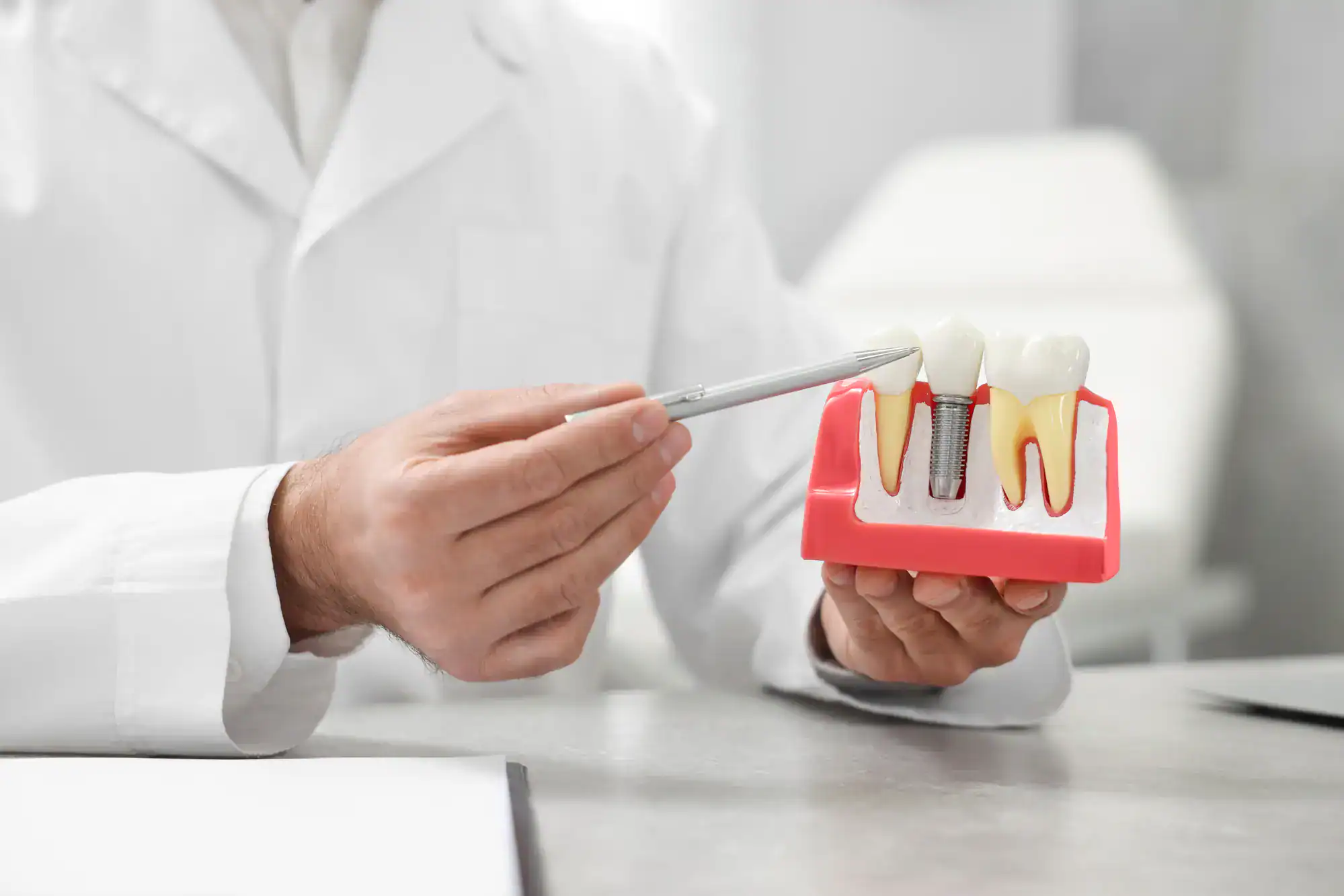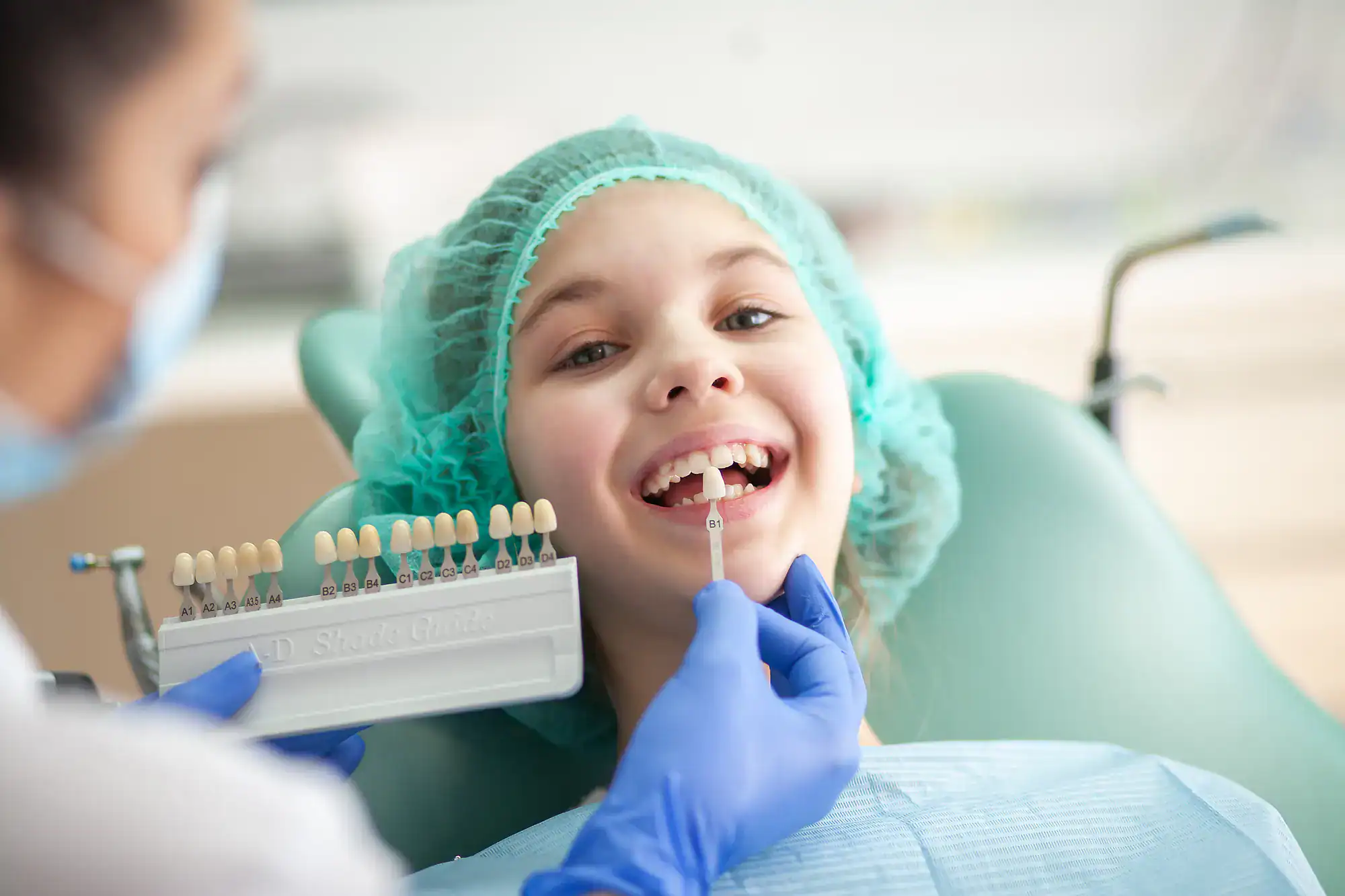
Hear from Our Customers

You’ll wake up every morning knowing your teeth are secure. No more worrying about slipping dentures during important conversations or avoiding your favorite restaurant because you can’t chew properly.
Dental implants give you back the simple pleasures you’ve been missing. Bite into an apple without hesitation. Laugh without covering your mouth. Speak clearly in meetings without that lisp from ill-fitting partials.
Your jawbone stays healthy and strong because implants stimulate natural bone growth. Your face maintains its youthful structure instead of the sunken look that comes with missing teeth. You invest once and enjoy the results for decades, not years.
Dr. Scott Kupetz has been helping Hudson Valley residents restore their smiles with precision and care. Our practice serves patients throughout Dutchess County, from Poughkeepsie to the surrounding communities who need reliable, permanent tooth replacement solutions.
You’re not just getting a dentist—you’re working with someone who understands that missing teeth affect every aspect of your life. Dr. Kupetz combines advanced implant techniques with a straightforward approach that puts you at ease throughout the entire process.
We have built our reputation on honest communication and lasting results. Patients travel from Ulster County, Albany County, and beyond because they know they’ll receive thorough care without the sales pressure you might find elsewhere.

Your journey starts with a comprehensive consultation where Dr. Kupetz evaluates your oral health and discusses your goals. We’ll take detailed images and measurements to create a personalized treatment plan that fits your timeline and budget.
During the implant placement, a small titanium post is precisely positioned in your jawbone where your natural tooth root used to be. This post acts as your new tooth’s foundation. The procedure is performed with local anesthesia, and most patients return to work the next day.
Over the next 3-6 months, your implant integrates with your natural bone through a process called osseointegration. Once healing is complete, your custom crown is attached to the implant. The result is a tooth that looks and functions exactly like the one you lost.

Ready to get started?
Whether you need a single tooth implant to replace one missing tooth or full mouth dental implants to restore your entire smile, Dr. Kupetz provides comprehensive implant services. Single tooth implants preserve your healthy adjacent teeth, while All-on-4 dental implants can replace an entire arch with just four strategically placed implants.
Implant-supported dentures offer superior stability compared to traditional dentures. They snap securely into place but can still be removed for cleaning. This solution works particularly well for patients in Dutchess County who want the security of implants without the complexity of individual tooth replacement.
We also specialize in cosmetic dental implants that blend seamlessly with your natural teeth. Each restoration is custom-crafted to match your existing teeth in color, shape, and size. Patients from Schenectady County to Rensselaer County choose our practice because they know their results will look natural, not obvious.

Dental implants can last 25-30 years or even a lifetime with proper care and maintenance. This makes them significantly more durable than bridges, which typically need replacement every 10-15 years, or dentures, which may need relining or replacement every 5-7 years.
The key to implant longevity is the titanium post that fuses with your jawbone. Unlike bridges that rely on adjacent teeth for support, or dentures that sit on your gums, implants have their own independent foundation that doesn’t compromise other teeth.
Your investment in dental implants often costs less over time than repeatedly replacing bridges or dentures. Most patients find that the convenience and confidence that comes with permanent teeth makes implants worth every penny.
All-on-4 dental implants use just four strategically placed implants to support an entire arch of teeth, while traditional full mouth implants typically require 6-8 implants per arch. The All-on-4 technique angles the back implants to maximize contact with available bone, often eliminating the need for bone grafting.
This approach reduces treatment time and cost while still providing excellent stability and function. Many patients can receive temporary teeth on the same day as implant placement, though the final restoration is completed after healing.
Traditional full mouth implants may be recommended when you have sufficient bone density and want individual crowns rather than a connected bridge. Dr. Kupetz will evaluate your specific situation and recommend the approach that gives you the best long-term results.
The cost of dental implants varies based on how many teeth you’re replacing and whether additional procedures like bone grafting are needed. A single tooth implant typically ranges from $3,000-$5,000, while full mouth solutions can range from $15,000-$30,000 per arch.
Many dental insurance plans now provide partial coverage for implants, recognizing them as a necessary treatment rather than cosmetic. Your coverage might pay for the crown portion even if it doesn’t cover the implant itself. We’ll help you understand your benefits and maximize your insurance coverage.
Most patients find that financing options make implants affordable with monthly payments that fit their budget. When you consider that implants can last decades while other options need frequent replacement, the long-term value often makes implants the most economical choice.
Age alone doesn’t disqualify you from dental implants. Many patients in their 70s and 80s successfully receive implants and enjoy improved quality of life. What matters more is your overall health and your body’s ability to heal properly after the procedure.
Gum disease must be treated before implant placement, but it doesn’t permanently eliminate you as a candidate. Dr. Kupetz will first address any periodontal issues to create a healthy foundation for your implants. This might involve deep cleaning, medication, or other treatments to get your gums healthy.
Some medical conditions like uncontrolled diabetes or heavy smoking can affect implant success, but most health issues can be managed with proper planning. During your consultation, we’ll review your medical history and work with your other healthcare providers to ensure the best possible outcome.
Most patients are surprised by how comfortable the implant procedure actually is. Local anesthesia completely numbs the area during treatment, and many patients report less discomfort than they experienced with tooth extractions. Some mild soreness afterward is normal and easily managed with over-the-counter pain medication.
Recovery typically involves 2-3 days of minor swelling and tenderness. Most patients return to work the next day, though you’ll want to stick to softer foods for the first week. Ice packs and prescribed medications help minimize any discomfort during the initial healing period.
The osseointegration process where your implant fuses with bone happens gradually over several months, but this doesn’t cause pain. You’ll have regular check-ups to monitor healing, and most patients forget they even have implants once the temporary crown is placed.
Dental implant failure is uncommon, occurring in less than 5% of cases when placed by an experienced dentist. Early failures usually happen within the first few months due to infection or poor healing, while late failures might occur years later due to gum disease or excessive force.
Signs of implant problems include persistent pain, swelling, looseness, or gum recession around the implant. If you notice any of these symptoms, immediate evaluation is important. Many complications can be successfully treated when caught early.
Dr. Kupetz stands behind his work and will address any implant complications promptly and thoroughly. Most implant failures can be treated by removing the failed implant, allowing the area to heal, and placing a new implant once conditions are optimal. Prevention through good oral hygiene and regular dental visits gives you the best chance of long-term success.
Other Services we provide in Marist College